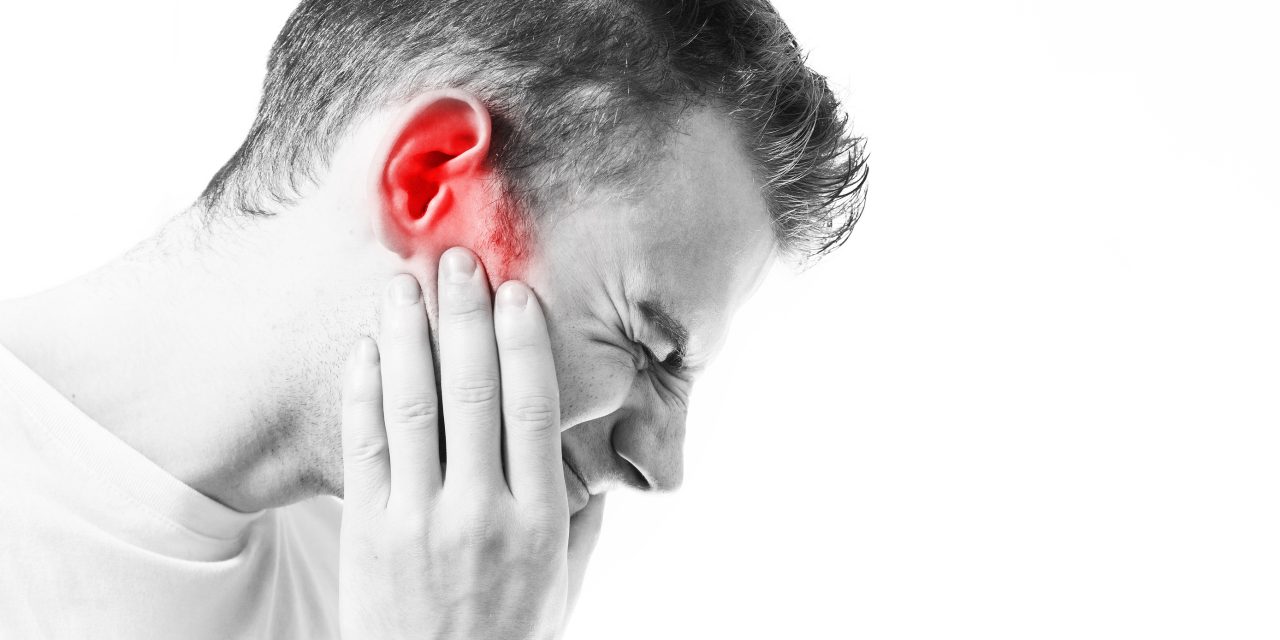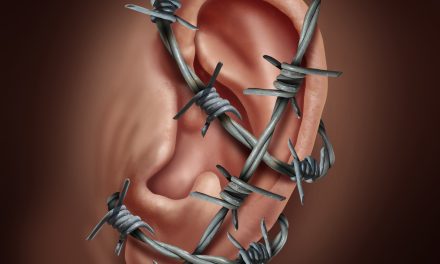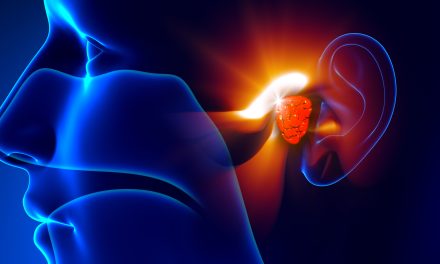Tinnitus can be a distracting and bothersome condition, particularly when it affects just one ear. It manifests as a constant or intermittent ringing, buzzing, or clicking sound in the ear, often disrupting daily activities and quality of life. Fortunately, several strategies, treatments, and therapies are available to help manage and potentially alleviate tinnitus in one ear.
To begin addressing this condition, those affected must understand the possible causes and contributing factors. While there is no one-size-fits-all solution, a combination of medical evaluation, professional treatments, and self-help strategies can lead sufferers toward relief. This article will explore various approaches, including alternative and complementary therapies, hearing aids, sound devices, lifestyle changes, and specialized techniques such as Tinnitus Retraining Therapy (TRT) and Cognitive Behavioral Therapy (CBT).
Armed with this knowledge and guidance from professionals, those grappling with tinnitus in one ear can devise a tailored approach to manage and mitigate the constant noise disrupting their lives. By actively monitoring progress and staying informed, relief could be on the horizon.
Key Takeaways
- Understanding tinnitus and its causes is essential for determining the right treatment plan.
- A combination of professional interventions and self-help strategies can help alleviate tinnitus symptoms.
- Specialized therapies like TRT and CBT offer effective methods for managing tinnitus long-term.
Understanding Tinnitus
Tinnitus is a condition characterized by the perception of noise or ringing in the ears when no external sound is present. It can manifest as various sounds, such as buzzing, hissing, or roaring. The following table briefly lists the possible sounds:
| Sound | Example |
|---|---|
| Buzzing | ✓ |
| Hissing | ✓ |
| Roaring | ✓ |
Tinnitus can occur in one or both ears and may be constant or intermittent. Although it may seem relatively harmless, it can significantly impact a person’s quality of life by leading to insomnia, difficulty concentrating, and even stress or anxiety.
There are two primary forms of tinnitus: subjective and objective. Subjective tinnitus is the most common form, and only the person affected can hear the sound. It results from issues within the auditory or neurological system. On the other hand, objective tinnitus is a very rare form, wherein both the person affected and the doctor examining them can hear the sound. Objective tinnitus arises from issues like muscle contractions or blood flow problems near the ear.
Several factors contribute to the development of tinnitus:
- Exposure to loud noises
- Age-related hearing loss
- Earwax build-up
- Ototoxic medications
- Ear or head injuries
- Medical conditions, like Meniere’s disease
Understanding tinnitus and its underlying causes is crucial to finding an effective way to manage or prevent this condition. While there is no universal cure, various treatments and management techniques can help those affected by tinnitus cope with its symptoms. Some approaches include sound therapy, cognitive-behavioral therapy, and the use of hearing aids. It is essential for individuals experiencing tinnitus to consult with healthcare professionals to determine the most appropriate course of action.
Initial Self-Help Strategies
Identifying Triggers
To effectively manage tinnitus in one ear, it’s crucial to first identify the triggers. Common triggers include loud noise exposure, certain medications, and underlying health conditions. The following list can help in pinpointing the possible causes:
- Loud noise exposure (e.g., concerts, machinery)
- Medications (e.g., aspirin, antibiotics)
- Health conditions (e.g., high blood pressure, earwax buildup)
Once the triggers are identified, it’s essential to address them appropriately by either reducing exposure or consulting a healthcare professional.
Noise Suppression Techniques
Utilizing noise suppression techniques can provide relief from tinnitus symptoms. Here are some effective methods:
- White noise machines: These devices produce a steady background sound that can mask tinnitus noise.
- Hearing aids: Those with hearing loss may find that hearing aids can help by amplifying external sounds, which in turn can make tinnitus less noticeable.
- Masking devices: Worn in the ear like hearing aids, these devices produce constant low-level noise to suppress tinnitus symptoms.
- Environmental changes: Sometimes, simply adding soft background sounds such as a fan or air purifier can help mask tinnitus.
Stress Management
Stress has been known to exacerbate tinnitus symptoms. Therefore, managing stress effectively is essential for relief. Here are some stress management techniques:
- Mindfulness meditation: Regular practice of mindfulness can help in staying present and reducing stress levels.
- Physical activity: Engaging in regular exercise can help lower stress and improve overall health.
- Sleep hygiene: Maintaining a consistent sleep schedule and creating a calming bedtime environment can contribute to better stress management.
By incorporating these self-help strategies, individuals can mitigate the effects of tinnitus in one ear and improve their overall well-being.
Medical Evaluation and Diagnosis
Hearing Tests
A medical evaluation for tinnitus often begins with a hearing test. This test will help determine if there is a hearing loss, which may be the cause of the tinnitus in one ear. A professional will usually conduct two types of tests:
- Pure-tone audiometry: In this test, the patient will wear headphones and respond to various frequencies and volumes of sound. The results are recorded in an audiogram.
- Speech audiometry: This test measures the patient’s ability to understand speech at different volume levels and clarity.
These hearing tests help identify the potential cause of tinnitus and determine its severity.
Imaging Techniques
In some cases, imaging techniques may be necessary for a more comprehensive diagnosis. Two common imaging methods are:
- Magnetic Resonance Imaging (MRI): This method uses a magnetic field and radio waves to create detailed images of the inner ear and surrounding structures. It can rule out or detect possible causes of tinnitus, such as tumors or nerve issues.
- Computed Tomography (CT) scan: A CT scan uses X-rays to create a cross-sectional image of the inner ear and surrounding tissues. This can help identify any structural abnormalities that may be contributing to tinnitus.
These imaging techniques assist in determining the underlying cause of tinnitus in one ear, and may inform the most appropriate treatment plan.
Professional Treatments
Medications
There are several medications available to help with managing tinnitus. While they may not completely eliminate the ringing, they can significantly reduce its severity. Some medications worth exploring include:
- Antidepressants: Medications such as amitriptyline and nortriptyline can help reduce the severity of tinnitus for some individuals.
- Benzodiazepines: These drugs, like diazepam and clonazepam, are typically prescribed to help reduce anxiety and can also have a positive effect on some people with tinnitus.
- Steroids: In cases of inflammation-related tinnitus, corticosteroid injections may be used to reduce swelling and improve symptoms.
It is important to consult your healthcare provider before starting any medication, as they will be able to determine the most appropriate treatment for your specific situation.
Therapies
Various therapies can be used to help manage tinnitus and improve your quality of life. Some therapies to consider include:
- Cognitive Behavioral Therapy (CBT): Through CBT, you can learn ways to change your perception of tinnitus and develop coping strategies to minimize its impact.
- Tinnitus Retraining Therapy (TRT): This therapy works by teaching you to ignore the sound of tinnitus using a combination of sound therapy and counseling.
- Sound Therapy: By using white noise or nature sounds, you can mask or cover up the ringing sound of tinnitus, making it less noticeable.
Professional guidance is key, as therapists can tailor a treatment plan specific to your needs.
Surgery Options
In some cases, surgery may be necessary to treat the underlying cause of tinnitus. Potential surgical options could include:
- Stapedectomy: For patients with otosclerosis, this procedure involves replacing the bones in the middle ear to improve hearing and potentially reduce tinnitus.
- Cochlear Implants: If tinnitus is caused by severe hearing loss, a cochlear implant can help by transmitting sound signals directly to the auditory nerve.
- Tumor Removal: When the cause of tinnitus is a tumor pressing on the auditory nerve, surgical removal could potentially alleviate the issue.
Surgery for tinnitus should always be carefully considered, and consultation with a specialist is essential for evaluating the risks and benefits in each unique case.
Alternative and Complementary Therapies
Acupuncture
Acupuncture is an ancient Chinese therapy that involves inserting thin needles into specific points in the body. Some individuals with tinnitus have reported relief from their symptoms after acupuncture sessions. It is believed that acupuncture helps restore balance in the body and enhance blood flow, which may contribute to tinnitus improvement.
- Schedule regular sessions with a certified acupuncturist
- Combine acupuncture with other complementary therapies for optimal results
Herbal Supplements
Certain herbal supplements are thought to help with tinnitus symptoms. Here are some popular options:
- Ginkgo Biloba: This herb is popularly believed to improve blood flow to the cochlea, which may help alleviate tinnitus symptoms. However, scientific evidence on its effectiveness is limited.
- Zinc: Studies suggest that zinc deficiency might be linked to tinnitus. Consider taking a zinc supplement, especially if you are prone to deficiencies.
- Melatonin: As a natural sleep aid, melatonin may indirectly help improve tinnitus symptoms by promoting better sleep quality.
Note: Speak with your healthcare provider before starting any herbal supplements, especially if you are on other medications.
Neuromodulation
Neuromodulation is a treatment option that involves altering nerve activity to alleviate tinnitus symptoms. One common approach is Transcranial Magnetic Stimulation (TMS). During a TMS session, a device is placed on the head to generate magnetic pulses that stimulate brain areas associated with tinnitus.
| Technique | Description |
|---|---|
| TMS | A non-invasive treatment that involves magnetic pulses targeting tinnitus-related brain areas |
Although more research is needed, neuromodulation has shown promising results for some tinnitus sufferers. Consult your healthcare provider to determine if this approach is suitable for your condition.
Hearing Aids and Sound Devices
Hearing aids play a crucial role in managing tinnitus in one ear. They can not only improve hearing ability but also alleviate the perception of tinnitus.
There are several types of hearing aids to choose from:
- Behind-the-ear (BTE): These devices rest behind the ear, directing the sound through a tube into an earmold fitted in the ear canal.
- In-the-ear (ITE): A custom-fit aid that entirely sits in the outer ear, suitable for mild to severe hearing loss.
- In-the-canal (ITC): These aids are custom-molded and fit partially in the ear canal, ensuring less visibility.
- Completely-in-the-canal (CIC): The smallest and least visible hearing aids, they fit further into the ear canal.
Not all types may be suitable for tinnitus sufferers, so it is essential to consult with an audiologist.
Moreover, certain sound devices can help to manage tinnitus:
- White noise machines: These devices produce continuous, soothing background noise that helps to mask the tinnitus sound, making it less noticeable. Examples include fan-based white noise machines or electronic devices that generate sounds like rain, ocean, and wind.
- Tinnitus maskers: Worn similarly to hearing aids, these devices produce various sounds, adjustable according to the user’s need, masking the tinnitus perception.
- Smartphone apps: Numerous apps offer white noise, nature sounds, or other masking options that individuals can customize to their preferences.
Some hearing aid models integrate sound generators that play background noises useful to mask tinnitus while improving listening capacities. It’s advised to discuss the available options with the audiologist to select the most appropriate device.
Lifestyle Changes and Home Remedies
Lifestyle changes and home remedies can be effective in managing tinnitus in one ear. While these methods may not completely cure tinnitus, they can provide relief and improve the overall quality of life. Below are several suggestions to help reduce the intensity of tinnitus symptoms.
- Reduce exposure to loud noise: Protect your ears by avoiding loud environments and using earplugs or noise-cancelling headphones when necessary. Continuous exposure to loud noises can worsen tinnitus.
- Manage stress: High levels of stress can exacerbate tinnitus symptoms. Incorporate relaxation techniques such as meditation, deep breathing exercises, and yoga into your daily routine.
- Limit caffeine and alcohol: Stimulants like caffeine and alcohol may aggravate tinnitus. It might be helpful to cut down on these substances to see if your symptoms improve.
- Get adequate sleep: Poor sleep can make tinnitus more noticeable. Maintain a consistent sleep schedule, and create a calming bedtime routine. Consider using a white noise machine to help mask tinnitus sounds during sleep.
- Exercise regularly: Engaging in regular physical activity can help improve blood circulation, reducing the potential for tinnitus-related issues. Aim for a minimum of 30 minutes of moderate exercise most days of the week.
- Try sound therapy: Using background noise, such as soft music, or ambient sounds, can help distract from tinnitus symptoms, making them less bothersome in quiet environments.
| Home Remedy | How To Use | Purpose |
|---|---|---|
| White noise machines | Use while sleeping or during relaxation | Mask tinnitus sounds, promote relaxation, improve sleep quality |
| Sound therapy apps | Use as needed, especially in quiet spaces | Provide background noise, distract from tinnitus symptoms |
| Warm compress | Apply to ear for 10-15 minutes | Relieve potential ear pain and inflammation |
In conclusion, making simple lifestyle adjustments and incorporating home remedies can contribute to managing tinnitus in one ear. It’s important to remember that results may vary between individuals. If your tinnitus continues to be bothersome or worsens, consult with a healthcare professional for further evaluation and treatment options.
Tinnitus Retraining Therapy (TRT)
Tinnitus Retraining Therapy (TRT) is an effective method for managing tinnitus symptoms, specifically focusing on habituation to the sounds. This approach aims to lessen the emotional and cognitive impacts of tinnitus, ultimately helping the affected ear adapt to the noise.
TRT involves two primary components:
- Counseling: Patients receive guidance and information regarding tinnitus and how to cope with it. This educational aspect helps to demystify the condition, alleviate fears, and reduce the overall stress related to tinnitus.
- Sound therapy: This involves using external sounds to help the brain habituate to the tinnitus sound. Sound generators or hearing aids may create a background noise that eases the prominence of tinnitus, decreasing the perceived volume and negative associations.
The treatment process for TRT typically spans 12 to 24 months, as habituation requires time and consistent effort. Individuals’ progress may vary, and it’s crucial to remember that TRT might not completely eradicate the tinnitus symptoms. However, it helps the brain to cope, rendering the sound less intrusive and bothersome.
Table showing possible outcomes of TRT for tinnitus in one ear:
| Outcome | Approximate Percentage of Patients |
|---|---|
| Marked Improvement | 65-75% |
| Moderate Improvement | 15-20% |
| No Improvement | 10-15% |
Combining TRT with lifestyle changes such as stress management, good sleep hygiene, and avoidance of tinnitus triggers can complement the therapy and improve overall quality of life for those suffering from tinnitus in one ear. It’s essential to consult with a healthcare professional to determine if TRT is the right course of action based on individual needs and the severity of the tinnitus.
Cognitive Behavioral Therapy (CBT)
Cognitive Behavioral Therapy (CBT) is a widely recognized psychological treatment that helps individuals learn to manage their tinnitus symptoms by altering their thoughts and behavior patterns. The therapy mainly focuses on changing negative thought patterns into more positive ones, ultimately improving the patient’s overall quality of life.
Benefits of CBT for Tinnitus:
- Reduction of tinnitus-related anxiety or depression
- Improved emotional well-being
- Enhanced coping skills
- Better sleep quality
Applying CBT for tinnitus may encompass several techniques, such as:
- Cognitive restructuring: This technique involves identifying and changing unrealistic or negative thoughts related to tinnitus, e.g., “My tinnitus will never improve.”
- Mindfulness practices: Individuals learn to focus on the present moment, acknowledging their tinnitus without judgment, which can help lower the associated distress.
- Relaxation strategies: Practicing deep breathing, progressive muscle relaxation, or meditation can reduce stress and make tinnitus more manageable.
- Exposure therapy: Gradually exposing patients to tinnitus sounds in controlled settings can eventually help them become more accustomed to the noise and less disturbed by it.
Typically, CBT for tinnitus is provided by a trained mental health professional, such as a psychologist or therapist. Sessions can occur individually or in a group setting, with both formats proving to be effective. The duration and frequency of the therapy usually depend on individual needs and progress.
Important Note: Though CBT is proved successful in managing tinnitus symptoms, it is not a cure for the condition. It is essential to combine CBT with other treatment methods, such as sound therapy or hearing aids, to achieve the best overall results.
Monitoring and Managing Progress
When addressing tinnitus in one ear, it is important to monitor and manage your progress. By carefully tracking any changes or improvements, you can evaluate the effectiveness of your chosen treatments and make necessary adjustments.
Establish a Progress Journal: Keeping a journal can be a helpful tool in monitoring your tinnitus. Document any changes in the intensity, frequency, or nature of your symptoms, along with any treatments you’ve tried and lifestyle modifications you’ve implemented. This will enable you to objectively analyze your progress and determine if the interventions are worth pursuing.
Example Journal Entry:
Date: Dec 12, 2023
Tinnitus Intensity: 7/10
Treatments Tried: Sound therapy, Ginkgo biloba
Lifestyle Changes: Reduced caffeine intake, daily exercise
Comments: Noticed slight reduction in intensity this week
Set Realistic Goals: It’s essential to have feasible expectations when trying to manage tinnitus. Goals should be S.M.A.R.T.—specific, measurable, achievable, relevant, and time-bound. Examples of such goals might include reducing the intensity of tinnitus by one point on a 10-point scale within a month or consistently using a sound therapy app for 15 minutes daily for two weeks.
Track and Compare Treatments: Different treatments may have varying effects on tinnitus symptoms. It is helpful to systematically compare their relative effectiveness, which will help you make informed decisions about continuing, modifying, or stopping specific treatments.
Example Treatment Comparison Table:
| Treatment | Duration | Intensity before | Intensity after | Notes |
|---|---|---|---|---|
| Sound therapy | 3 weeks | 8/10 | 6/10 | Most effective |
| Ginkgo biloba | 2 weeks | 8/10 | 7/10 | Minor relief |
| Acupuncture | 1 week | 7/10 | 7/10 | No improvement |
Maintain Regular Check-ins: Regular consultations with a healthcare professional, such as a primary care physician, audiologist, or otolaryngologist, are crucial in managing tinnitus. They can provide expert guidance and monitor progress to ensure the treatments you’re pursuing are safe and appropriate for your unique circumstances.
In conclusion, monitoring your progress and managing your tinnitus journey are vital components of addressing the condition. Keeping a journal, setting realistic goals, evaluating treatments, and seeking professional guidance will maximize your chances of successfully managing your tinnitus and improving your quality of life.
Frequently Asked Questions
What are the most effective treatments currently available for tinnitus?
There are several treatments available for tinnitus, although their effectiveness varies from person to person. Widely accepted approaches include cognitive-behavioral therapy (CBT), tinnitus retraining therapy (TRT), and masking devices such as hearing aids or white noise machines. In some cases, treating the underlying cause, such as earwax removal or addressing an ear infection, may also help alleviate symptoms.
Can certain medications alleviate the symptoms of tinnitus?
While there is no specific medication to cure tinnitus, some medications may help reduce its severity. These include certain antidepressants and anti-anxiety medications, which can help to minimize the psychological impact of tinnitus. It’s crucial to consult with a healthcare professional before starting any medications for tinnitus treatment.
Are there any natural remedies known to decrease the intensity of tinnitus?
Some natural remedies, such as ginkgo biloba, zinc, and vitamin B12, have been suggested to help alleviate tinnitus symptoms. However, more research is needed to confirm the effectiveness of these supplements. Additionally, practices like meditation, yoga, and mindfulness can help manage the stress and anxiety that might exacerbate tinnitus.
What could be the underlying causes of experiencing tinnitus in only one ear?
Experiencing tinnitus in one ear could be due to several causes, such as an earwax blockage, an ear infection, a benign tumor called an acoustic neuroma, or disorders like Meniere’s disease. A thorough examination by an audiologist or an otolaryngologist is essential to identify the specific cause and develop an appropriate treatment plan.
What steps can be taken if one experiences persistent ringing in one ear?
If persistent ringing occurs in one ear, it’s essential to undergo a thorough evaluation by a healthcare professional. In the meantime, avoid loud environments, limit caffeine and alcohol consumption, and practice stress management techniques to minimize the impact of tinnitus on daily life.
Is there any connection between magnesium intake and improvement in tinnitus symptoms?
Some studies suggest that magnesium deficiency might increase the risk of developing tinnitus. However, more research is needed to confirm this relationship. Nevertheless, maintaining a balanced diet that includes magnesium-rich foods, such as leafy greens, nuts, and seeds, might contribute to overall ear health and well-being.





















